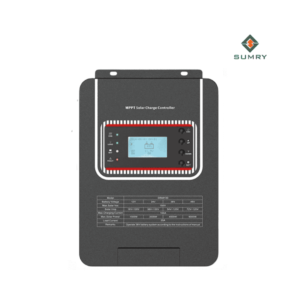Warning Signs of Alcohol Poisoning and Alcohol Withdrawal
07/10/2020 19:38
Binge drinking, or drinking too much alcohol in one session, is a common cause of alcohol poisoning. Emergency medical services should be called immediately if any combination of these symptoms is a warning sign or symptom of alcohol poisoning is present, especially breathing problems, unconsciousness, or persistent vomiting. Time is critical in alcohol poisoning cases, as the person’s condition can deteriorate rapidly even after they’ve stopped drinking. It is crucial to seek immediate medical assistance if you suspect someone is experiencing alcohol poisoning.
- AlcoholAwareness.org is dedicated to providing support and resources for individuals struggling with alcohol addiction.
- Fortunately, there are effective treatments available for alcohol use disorder.
- Therefore, if you observe someone with pale, clammy skin and suspect alcohol poisoning, it is crucial to seek immediate medical assistance.
- This is known as alcohol-induced cardiomyopathy, where excessive alcohol consumption damages the heart by causing it to stretch and change shape.
- The risk of developing hypothermia due to alcohol consumption is higher in cool air temperatures because the heat loss can result in falling deep body temperature.
Dual Diagnosis Care Is Essential When Depression And Addiction Feed Off Each Other
- As BAC levels continue to rise, normal bodily functions begin to slow down, and vital areas of the brain controlling breathing, heart rate, and temperature control start to shut down.
- Don’t wait; call emergency services right away, even if you’re unsure it’s necessary.
- Alcohol use and taking opioids or sedative hypnotics, such as sleep and anti-anxiety medications, can increase your risk of an overdose.
The body continues to process alcohol even while unconscious, which can cause breathing to slow down or stop. If someone has alcohol poisoning, they need medical attention, not sleep. Doctors diagnose alcohol poisoning based on symptoms, medical history, and lab tests. Alcohol poisoning symptoms can cause vital organs to shut down, affecting the brain, heart, and liver. They can range from mild alcohol poisoning to severe life-threatening conditions.
Responsible Drinking Habits
You’ll face the same risks whether you stick to one type or mix several. When someone shows signs of alcohol poisoning, taking immediate and appropriate action can mean the difference between life and death. Time-critical prevention strategies and community awareness about proper response protocols are essential for saving lives in these emergencies. If a person with alcohol poisoning vomits, they should be turned on their side to prevent choking. It is important to stay with the person and keep them awake, as there is a risk they could choke on their own sick or stop breathing. If they are unconscious, do not give them anything to eat or drink, as they could choke.
Alcohol Poisoning: Know These Warning Signs

Understanding how much alcohol can kill you starts with recognizing standard drink measurements and consumption rates that prevent toxic buildup in your bloodstream. Fatal Outcomes remain possible even after surviving initial alcohol poisoning. Delayed complications including respiratory failure, choking on vomit, hypothermia, and cardiac arrest, can occur hours or days after the acute episode. Understanding these risks helps you recognize when alcohol poisoning requires immediate hospital intervention rather than attempting home treatment. Anticonvulsant medications control seizures that can occur during severe alcohol poisoning.
What To Do in an Emergency
While the liver typically prevents alcohol toxins from entering the bloodstream, excessive drinking in a short period can overwhelm the liver. Alcohol poisoning can lead to severe health complications, including brain damage and death. Recognizing the signs of alcohol poisoning is crucial, as Alcohol Use Disorder it can help prevent these devastating outcomes. One of the key symptoms is changes in skin colour and temperature, such as pale, flushed, cold, or clammy skin.
Signs and Symptoms of Alcohol Poisoning
Alcohol poisoning is characterized by symptoms such as slowed responses, vomiting, lack of coordination, difficulty remaining conscious, and slow or irregular breathing. In summary, while black vomit itself is not a https://tema-celik.com/oxford-house-apartments-15515-van-aken-blvd-2/ definitive indicator of alcohol poisoning, vomiting is a common symptom of this condition. Alcohol poisoning is a severe and potentially life-threatening condition that requires immediate medical intervention. If an individual exhibits signs of alcohol poisoning, including excessive vomiting and unresponsiveness, it is crucial to seek emergency medical assistance. Additionally, black vomit, or CGE, may indicate internal bleeding, especially if accompanied by other symptoms such as abdominal pain, and warrants prompt medical attention. The consequences of binge drinking can be severe, leading to blackouts, loss of consciousness, and even death.
The effects of alcohol poisoning can vary from person to person, and there is no definitive BAC level at which alcohol poisoning will occur. However, healthcare providers use BAC tests to diagnose alcohol poisoning. A BAC of 0.30% to 0.40% is considered life-threatening, and a BAC above 0.40% is potentially fatal, carrying a high risk of coma and death from respiratory arrest. Alcohol also affects the part of the brain that regulates breathing, so someone experiencing alcohol poisoning can have slow, shallow or irregular breathing.
A Guide to Sober Living Homes in Los Angeles and Why They Matter in Recovery
- The best way to prevent alcohol-induced cardiomyopathy is to abstain from alcohol or drink in moderation.
- If you suspect someone is experiencing alcohol poisoning, call 911 or your local emergency services number immediately.
- Our staff are highly trained with dual mental health and substance use licensing.
- Calling 911 or your local emergency services is the first and most important step when you suspect alcohol poisoning.
This is the body’s way of getting rid of alcohol to avoid further complications or death. However, vomiting increases the risk of choking or inhaling vomit, which can lead to asphyxiation or aspiration pneumonia. Mixing different alcohol types doesn’t directly increase your alcohol poisoning risk. The real danger comes from losing track of your total alcohol consumption when switching between different drinks. While mixing effects might lead to worse hangovers due to varying congener levels, it’s the total amount of alcohol you consume, not the combination, that determines poisoning risk.
You’re more likely to develop depression, anxiety, and other mental health conditions that persist long after the acute poisoning resolves. These episodes often trigger intense feelings of anger, shame, and helplessness that can last for weeks. Never assume they’re improving based on temporary lucidity or reduced symptoms. Alcohol continues absorbing into the bloodstream for hours after consumption stops, meaning their condition can deteriorate without warning. A BAC over 0.40% poses extreme danger and can cause coma or complete respiratory failure.
She holds advanced degrees from Georgetown University and Rush University, along with multiple certifications in psychiatric care, addiction treatment, and pediatric mental health. She is currently pursuing a fellowship in Precision Psychiatry and Functional Medicine. Remember, these instructions are only meant to help stabilise the person until professional medical help arrives. Alcohol poisoning is a severe condition, and timely medical intervention is crucial for the person’s safety and well-being. If the person is conscious, help them sit up or support them in a partially upright position. If they are unconscious, place them in the recovery position with an ear towards the ground to prevent choking.

 Cáp kết nối pin lithium GTX2500 Sofar Solar
Cáp kết nối pin lithium GTX2500 Sofar Solar  Inverter hòa lưới SOFAR 5KW 1 pha (5KTLM-G2)
Inverter hòa lưới SOFAR 5KW 1 pha (5KTLM-G2)  Inverter hòa lưới SOFAR 50KW 3 pha (50000TL)
Inverter hòa lưới SOFAR 50KW 3 pha (50000TL)  Hệ Thống Điện Backup COMBO 500W 12V
Hệ Thống Điện Backup COMBO 500W 12V  Pin lưu trữ Lithium SOFAR 48V - 2KW (GTX2000)
Pin lưu trữ Lithium SOFAR 48V - 2KW (GTX2000)  INVERTER JFY SUNLEAF 1.5KW
INVERTER JFY SUNLEAF 1.5KW  Bộ điều khiển sạc PWM 30A (AT2024)
Bộ điều khiển sạc PWM 30A (AT2024)  Bộ điều khiển sạc PWM 20A (AT2024)
Bộ điều khiển sạc PWM 20A (AT2024)  Inverter hòa lưới SOFAR 110KW (110KTL)
Inverter hòa lưới SOFAR 110KW (110KTL)  Pin lưu trữ Lithium SOFAR 20KW 3 pha (GTX 3000-H8)
Pin lưu trữ Lithium SOFAR 20KW 3 pha (GTX 3000-H8)  INVERTER JFY SUNLEAF 1.1KW
INVERTER JFY SUNLEAF 1.1KW  Inverter Hòa Lưới Sofar Solar 3000KTLM-G2 (3KW)
Inverter Hòa Lưới Sofar Solar 3000KTLM-G2 (3KW)  Bộ điều khiển sạc PWM 30A (FT4024)
Bộ điều khiển sạc PWM 30A (FT4024)  Điều khiển sạc MPPT 80A Sumry (SR4880)
Điều khiển sạc MPPT 80A Sumry (SR4880)  Pin lưu trữ Lithium SOFAR 48V-100A (GTX5000) 1pha
Pin lưu trữ Lithium SOFAR 48V-100A (GTX5000) 1pha  Bộ điều khiển sạc PWM 50A (FT6024)
Bộ điều khiển sạc PWM 50A (FT6024)  Điều khiển sạc MPPT 50A LCD - 12V/24V/48V Auto
Điều khiển sạc MPPT 50A LCD - 12V/24V/48V Auto  Tấm Pin Mặt Trời Mono WORLD ENERGY 200W-24V
Tấm Pin Mặt Trời Mono WORLD ENERGY 200W-24V  Điều khiển sạc MPPT 100A Sumry (SR48100)
Điều khiển sạc MPPT 100A Sumry (SR48100) 










